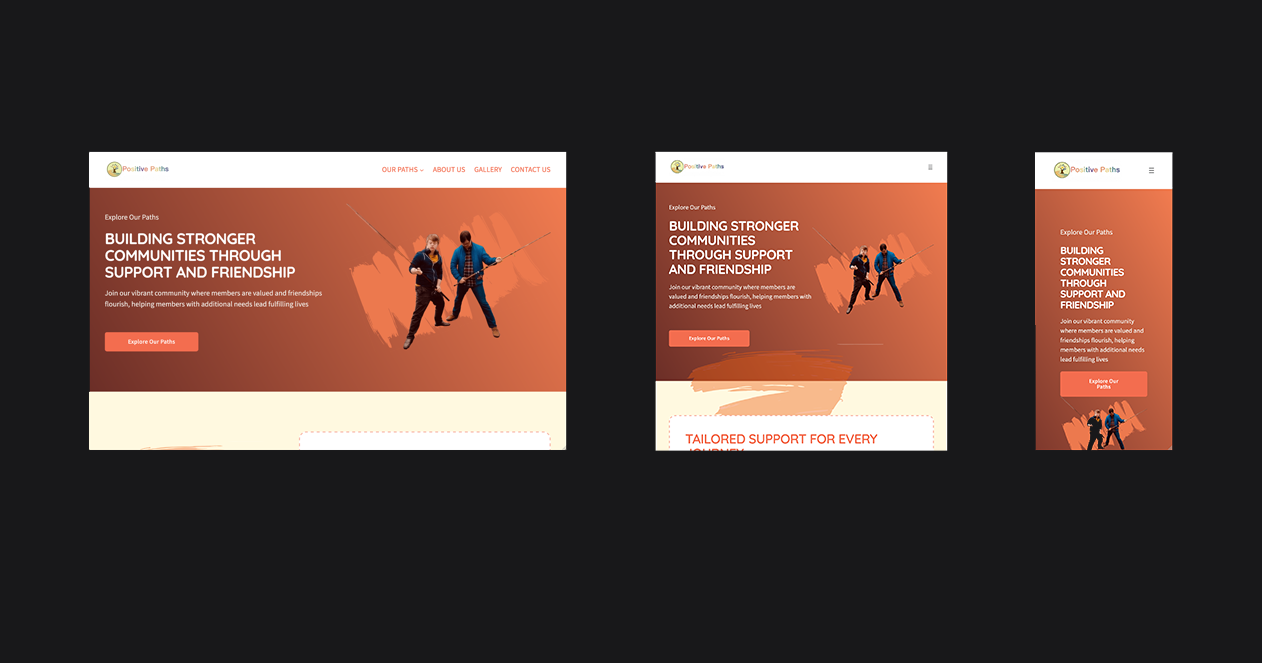Web Design for Small Business
As a small business owner in Edinburgh, you're probably no stranger to the importance of having a solid online presence. But when creating a website that actually works for your business we all know it can be a daunting task. Where to start?
The Importance of Website Design for Small Business Success
For small businesses, a website is often the first point of contact with potential customers. It's the digital equivalent of a shopfront, and just like a shopfront, it needs to be attractive, easy to navigate, and clearly communicate your value proposition. A well-designed website can help you establish credibility, build trust with your audience, and ultimately drive more sales.
What makes a website successful? According to Seth Godin, renowned author, serial entrepreneur and marketing expert, a successful website is one that solves a problem
for the visitor. In other words, it needs to provide value, whether that's through informative content, engaging visuals, or a seamless user experience.
Top 5 Website Design Mistakes Small Businesses Make
So, what are some common website design mistakes that small businesses make? Here are a few to watch out for:
- Poor navigation: If your website is hard to navigate, visitors will quickly lose interest and leave. Make sure your menu is clear, concise, and easy to use.
- Lack of mobile responsiveness: With more and more people accessing the internet on their mobile phones, it's essential that your website looks and functions well on smaller screens.
- Inadequate content: Your website needs to provide value to your visitors, whether that's through informative content, engaging visuals, or a clear call-to-action.
- Too much clutter: A cluttered website can be overwhelming and difficult to navigate. Keep your design clean and simple, and focus on the essentials.
- No clear call-to-action: What do you want visitors to do on your website? Make it clear and obvious, whether that's through a prominent call-to-action button or a clear message.
How to Create a Professional Website on a Budget
Creating a professional website doesn't have to break the bank. Here are a few tips to help you get started:
- Use a website builder: Website builders like Wix, Squarespace, and Framer offer a range of templates and design tools that can help you create a professional-looking website without needing to know how to code.
- Keep it simple: Don't try to create a website that's too complex or feature-rich. Focus on the essentials and keep your design clean and simple.
- Use high-quality images: Images can make or break a website. Use high-quality images that are relevant to your business and help to tell your story.
- Optimise for SEO: Make sure your website is optimised for search engines by using relevant keywords, meta descriptions, and optimising your images.
The Role of Web Design in Small Business Branding
Your website is often the first point of contact with potential customers, and it's essential that it reflects your brand values and personality. Here are a few tips to help you create a website that accurately reflects your brand:
- Use consistent branding: Use consistent branding across your website, including your logo, colour scheme, and typography.
- Tell your story: Use your website to tell your story and share your values and mission.
- Use high-quality images: Use high-quality images that reflect your brand and help to tell your story.
- Keep it up-to-date: Make sure your website is regularly updated with fresh content and new information.
Why Small Businesses Need a Mobile-Friendly Website
With more and more people accessing the internet on their mobile phones, it's essential that your website looks and functions well on smaller screens. Here are a few reasons why small businesses need a mobile-friendly website:
- Increased visibility: A mobile-friendly website can help you reach a wider audience and increase your visibility online.
- Improved user experience: A mobile-friendly website provides a better user experience for visitors, whether they're accessing your website on a smartphone or tablet.
- Increased conversions: A mobile-friendly website can help you increase conversions and drive more sales.

A well-designed website is the key to unlocking your small business's online potential, and with a bit of planning and creativity, you can create a site that truly reflects your brand and helps you achieve your goals.